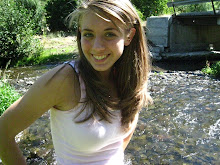 Throughout the course of the play, Hamlet begins to doubt his faith, question the afterlife, and attempts to reason through all of chaos in his life. Shakespeare informs his audience that Hamlet and his best friend Horatio attend school in Wittenburg, a Protestant school. Although, the majority of the other characters are Catholic, the audience is led to believe that Hamlet holds to protestant teaching and heaven as an afterlife. This religious position would deeply question the ghost that appears right off the bat, starting the play. As the ghost beckons Hamlet to follow, Hamlet says, "Why, what should be the fear? I do not set my life at a pin's fee, and for my soul, what can it do to that, being a thing immortal itself? It waves me forth again. I'll follow it." Although Hamlet's schooling would have taught him to be skeptical in such an encounter, Hamlet is curious and has a "what have i got to lose" attitude. Even before his encounter with the ghost, Hamlet questions his worth and wishes he could die if only "the Everlasting had not fixed His canon 'gainst self-slaughter!!!" He says in his first soliloquy "O, that this too too sullied flesh would melt, thaw, and resolve itself into a dew!" In response to his father's death and the marriage of his mother to his uncle, Hamlet wonders why no one else considers the situation bizarre. He is emotionally fragile to the point where he wishes he could commit suicide.
Throughout the course of the play, Hamlet begins to doubt his faith, question the afterlife, and attempts to reason through all of chaos in his life. Shakespeare informs his audience that Hamlet and his best friend Horatio attend school in Wittenburg, a Protestant school. Although, the majority of the other characters are Catholic, the audience is led to believe that Hamlet holds to protestant teaching and heaven as an afterlife. This religious position would deeply question the ghost that appears right off the bat, starting the play. As the ghost beckons Hamlet to follow, Hamlet says, "Why, what should be the fear? I do not set my life at a pin's fee, and for my soul, what can it do to that, being a thing immortal itself? It waves me forth again. I'll follow it." Although Hamlet's schooling would have taught him to be skeptical in such an encounter, Hamlet is curious and has a "what have i got to lose" attitude. Even before his encounter with the ghost, Hamlet questions his worth and wishes he could die if only "the Everlasting had not fixed His canon 'gainst self-slaughter!!!" He says in his first soliloquy "O, that this too too sullied flesh would melt, thaw, and resolve itself into a dew!" In response to his father's death and the marriage of his mother to his uncle, Hamlet wonders why no one else considers the situation bizarre. He is emotionally fragile to the point where he wishes he could commit suicide. Although Hamlet expresses such a range of emotions, he admits himself that he can't understand why those emotions can't be turned into action. Especially after he learns of his father's murder by his uncle, he suffers inner conflict in not being able to bring himself to kill the king. In Act Two, during the play, Hamlet ponders, "What is he to Hecuba or Hecuba to him, that he should weep for her?" He questions why an actor can express his emotions so freely and passionately over a simple play, while he can't even when his is reality. Hamlet continues to question the after life during his famous "to be or not to be" speech in Act Three. This speech seems to sum up Hamlet's emotional state throughout the play in a simple and short phrase. He is torn between his chaotic life on earth and his death, forever loomed over by uncertainty.
During Hamlet's iconic conversation with Yorick's skull, he seems to come to terms with death. He talks to the skull with humor and wit, very much an example of dark humor. He comes to accept that all people die. All people will one day be a skull in a graveyard. No matter what mistakes you make in life, don't really matter, because the Divine is sovereign: "There's a divinity that shapes our ends, rough hew them how we will."
In the end he admits his love for Ophelia after learning of her death by suicide. Their love story is another subplot within the play, another example of Hamlet's continual emotional battle. He loves her, than he pretends not to, breaks her heart, then claims to love her more than "forty thousand brothers." Obviously her suicide creates tension and raises many questions among the other characters. I think that when it comes to his death, Hamlet goes on to heaven. He understands and accepts protestant teaching, even though he may face life pessimistically.


No comments:
Post a Comment